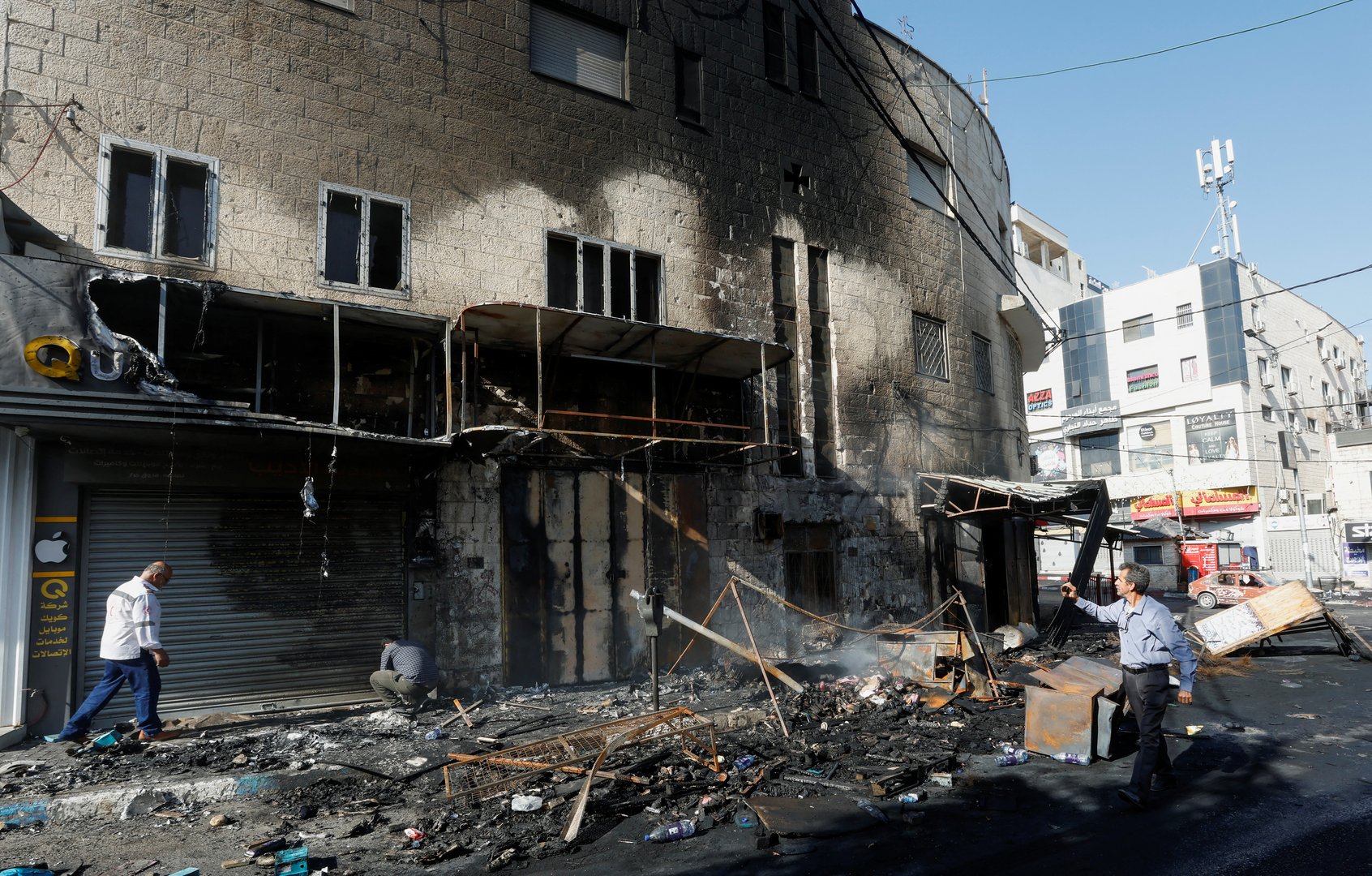Thousands of people were evacuated from the Jenin refugee camp as one of Israel’s biggest West Bank military operations in years continued for a second day on Tuesday and a car-ramming in Tel Aviv underlined the risk of violence spreading.
The operation, which the army said was aimed at destroying infrastructure and weapons of militant groups in the camp, was launched with a drone strike in the early hours of Monday, and over 1,000 troops have been deployed. At least 10 people have been killed, Palestinian officials said.
“At this moment we are completing the mission, and I can say that our extensive activity in Jenin is not a one-time operation,” Prime Minister Benjamin Netanyahu told journalists at a checkpoint near Jenin.
The densely populated refugee camp, where some 14,000 people live in less than half a square kilometre, has been one of the focal points of a wave of violence that has swept the West Bank for more than a year, drawing growing international alarm.
There was no indication of how much longer the operation might last after officials said earlier it could run for one or two days.
But a car-ramming and stabbing attack in Israel’s economic hub Tel Aviv, in which eight people were hurt, showed the risk it could lead to a further escalation as a previous raid on Jenin did last month.
The Islamist Hamas group said the attacker, identified as 23 year-old Abdel-Wahab Khalyleh, who was shot dead at the scene, was a member. It said the attack was “an act of self-defence in the face of the ongoing Zionist massacre in Jenin”.
In Jenin, drones circulated overhead and sporadic gunfire and explosions sounded near the refugee camp, which fighters from militant groups including Hamas, Islamic Jihad and Fatah have fortified with a range of obstacles and watching posts to counter regular army raids.
Power and water supplies remained cut off in the camp and in some areas of the city for a second day after bulldozers that ploughed up roads looking for improvised bombs cut power cables and a main water pipe.
Israeli forces also uncovered several underground explosives caches, one concealed in a tunnel under a mosque.
500 FAMILIES EVACUATED
Late on Monday, the Palestinian Red Crescent said it had evacuated 500 families from the camp, or around 3,000 people, and UN agencies expressed alarm at the scale of the air and ground operation.
Trucks brought food, water and other supplies collected by volunteers in the nearby city of Nablus to Jenin where they were distributed at hospitals and social centres to those displaced by the fighting.
Jihad Hassan, 63, who fled the camp with his family after his son was wounded, said the drone strike had prompted him to leave.
“You don’t hear a sound, you just see the explosion,” he said, as he waited with his son at the Jenin Government Hospital. “It is something, when a person is forced to leave their home,” he said.
Echoing Palestinian emergency services, the World Health Organization said first responders had been prevented from entering the camp to reach wounded people. An Israeli military spokesman said there had been no such order.
“Ambulances have a free pass and we are also coordinating the entry of ambulances,” he told reporters late on Monday.
A Palestinian wounded during the clashes died overnight and another body was found in the morning, bringing the death toll to 10, with around 100 wounded, 20 of them critically, the Palestinian health ministry said. Another Palestinian was also killed in Ramallah on Monday. But, with the fighting diminishing in intensity, no further deaths were reported.
The Islamic Jihad faction claimed four of the dead as its fighters. Hamas, another Islamist faction, claimed a fifth. The status of the others was unclear, although Israeli officials said as far as they were aware, no civilians had been killed.
Problems at the hospital morgue, forced health services to transfer some bodies from Jenin to another hospital in nearby Qabatia, officials said.
BUSINESSES CLOSE
Many offices and businesses across the occupied West Bank closed on Tuesday in response to calls for a general strike to protest the operation, which the Palestinian Authority has described as a “war crime”.
The fighting further underlined once more the lack of any sign of a political solution to the decades-long conflict and international reaction to the operation was mixed. The United States said it respected Israel’s right to defend itself but said it was imperative to avoid civilian casualties.
Mohammed Moustafa Orfy, Egypt’s permanent representative to the Arab League, said the operation would hinder efforts to bring reconciliation after months of escalating violence.
“What is happening in Jenin, from brutal killing using the Israeli war machine, is aimed at shrinking to a very large extent the chances of reviving the peace process, he said.







Click here to change your cookie preferences